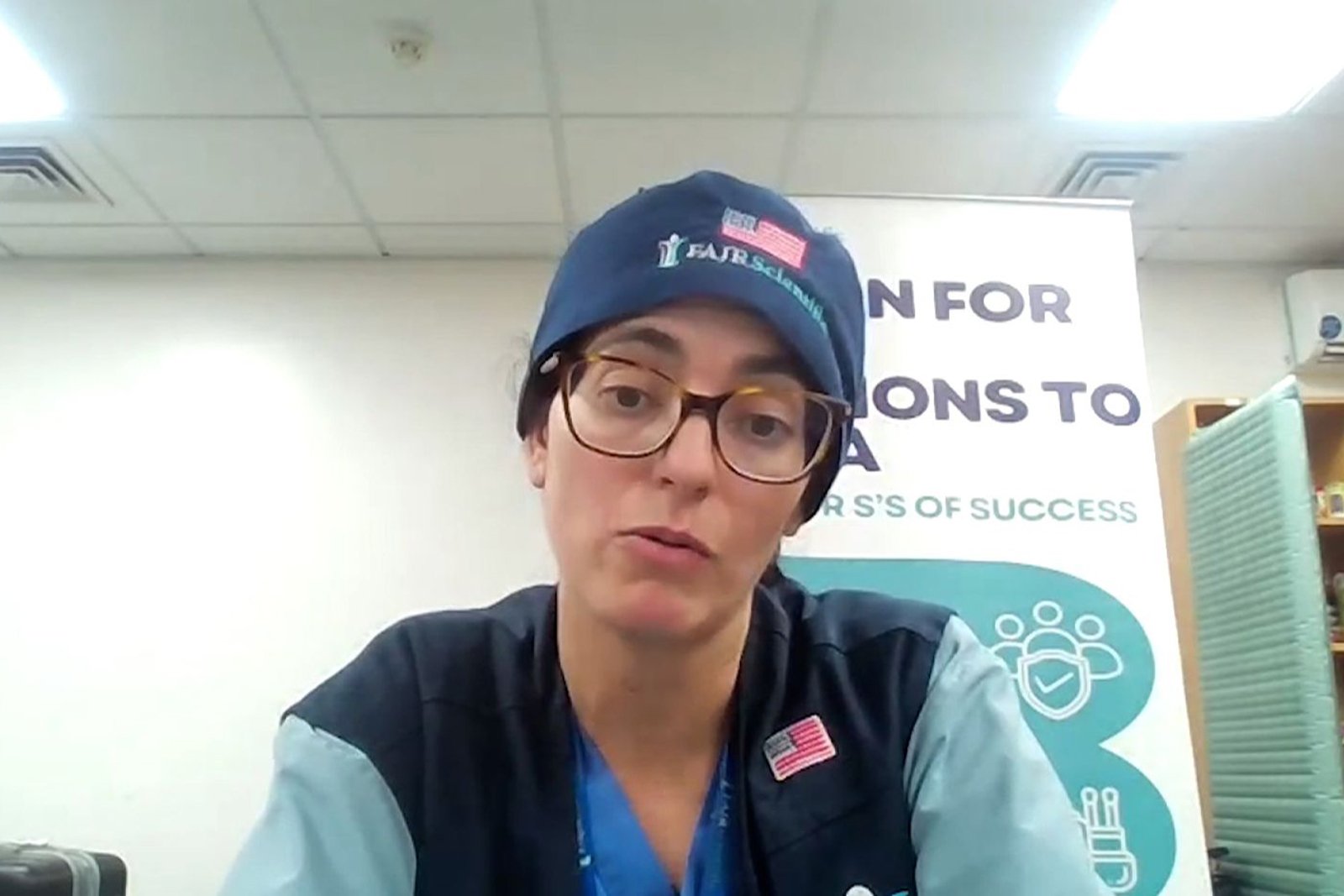Dr Ahlia Kattan should be home in California with her three kids now. Instead, she is spending all her time at Gaza’s European Hospital on the outskirts of Rafah.
Kattan is a doctor who specializes in helping people who are very sick and need special care. He is one of at least 22 American doctors who are stuck in Gaza because the Israeli military closed the border to Egypt. Rafah was the only way for foreign aid workers to go in and out of Gaza.
My kids have been texting me today saying that you said you would be home on Tuesday, Kattan told the media. The WHO is working to find a safe way for us to leave. It’s not going to happen.
The crossing is not open because the army took control of it last week. Israeli and Egyptian officials have not been able to agree on reopening it. They are blaming each other for keeping it closed. At the moment, many foreign doctors are trapped in Gaza, and others can’t get in because the situation in the area is getting worse for people needing help.
FAJR Scientific, a non-profit organization in the United States, brought Kattan and 16 other doctors to Gaza. Now, they are asking the US government to help the team safely leave Gaza. They were supposed to leave on Monday.
“I am asking the US government to work together with the WHO to bring home US citizens who are stuck in a war zone as soon as possible,” said Mosab Nasser, the leader of the organization, who is also in Gaza.
At least one person on the team needs to be taken out for medical reasons, he said. 17 medics, such as 12 Americans, 3 people from the UK, 1 from Oman, and 1 from Egypt.
Kattan and her husband, who is a doctor, came to Gaza over two weeks ago because they saw the people suffering on TV and wanted to help.
We knew that people needed doctors to put them to sleep for surgery, especially women and children. “We knew we had something valuable to offer,” said Kattan.
The FAJR Scientific team made videos about their experiences and the conditions they face in the European Hospital. They only shared these videos with the media.
In a video, Laura Swoboda, a nurse who is an expert in treating wounds, talks about hearing the sound of drones flying above. “Some people think we are safe, but war is still happening. There is always a possibility that violence could start again,” she said.
The hospital is not the only place where you can find dangerous conditions.
We didn’t know how bad things were here. We couldn’t use soap to clean our hands before dealing with wounds that had maggots. Swoboda said they didn’t have sanitizer wipes to clean the tables after each patient.
Many people kept coming in one after another. We don’t have any more gauze to clean the cuts and scrapes. We don’t have any advanced dressings left, and we used up all of our cleaners. We are using whatever we can find right now.
This is what “clean” looks like in Gaza, says Kattan in a video showing an operating room with plastic overalls scattered on the operating table.
Before a surgery to fix the amputations of someone who lost all four limbs, Kattan talks about the lack of pain relief medicine. She picked up a bottle of Propofol and said the medics brought it with them from the US.
FAJR Scientific works with WHO. FAJR Scientific says WHO is trying to organize a rescue.
Another medical team from Palestine American Medical Association is currently working at the European Hospital. Out of the 19 people on the PAMA medical team, 10 are from the United States.
The volunteers on the FAJR Scientific mission knew it was risky to travel to a war zone, but they never thought they would get stuck in Gaza.
Now, she is struggling because she wants to go back home to her kids, but she also feels guilty for wanting to leave Gaza while the Israeli military might attack more and there might be a higher demand for medical help.
I miss my kids and waking up in the morning and realizing they are not next to me. The tough part is knowing that I will get to leave at some point. I get to go home and feel safe. “I know my kids are safe,” she said.
I have made a lot of friends here who are the same age as me and have kids my age. They don’t have things like security and basic needs.
After watching the hospital in southern Gaza struggle for over two weeks, Kattan said that she and her coworkers just want to leave Gaza if other doctors can take their place.
We are parents who want to be at home with our families, and children, we are doctors here, and we have friends and we can’t leave them.
Date:

